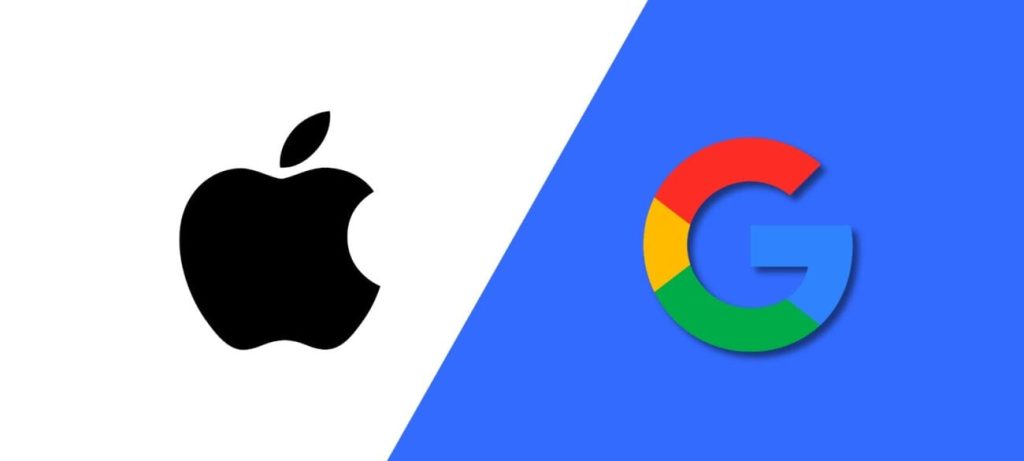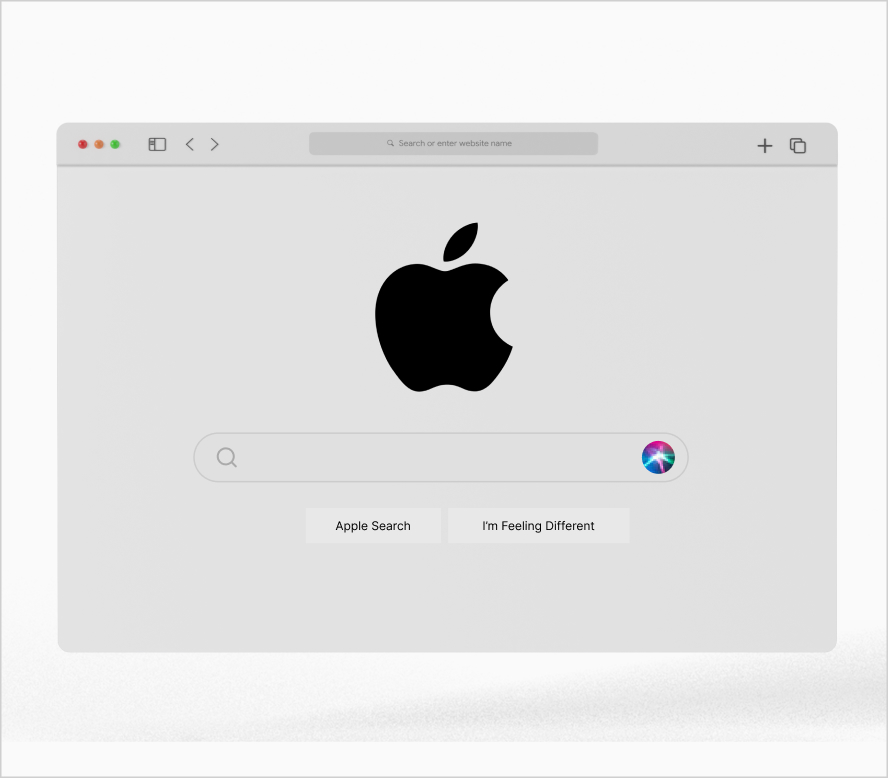Apple Search Engine – What We Know So Far
Google is a household name in search, enjoying an 80 to 90 percent share of the search engine market. This has made Google a default search engine for most devices, including Apple devices. Recently, calls by legislators to regulate Google have increased to avoid a future dictated by the search giant.
However, rumor has it that Apple, another tech giant, is working towards launching its own search engine to rival Google. If you have an iPhone, you’ve likely used Apple’s search engine before—Spotlight. Read along to learn everything we know about the Apple search engine and what it means for Google and SEO.
Understanding Apple Search Engine
Apple search engine is still in development, so it is unclear how it will look and function. However, Apple confirmed Applebot (web crawler for Apple) in 2015, which Siri and Spotlight use.
Spotlight is similar to a universal search tool integrated into the operating system. If you have used an iPhone, you might have used it without knowing.
To access it, swipe your iPhone down from the middle of the home screen (if you’re using older versions, swipe left to right). You’ll see the search bar at the top.
If you have a Mac, you can reveal Spotlight by clicking the magnifying glass in the top corner of your top menu bar.
Initially, Spotlight helped display local results such as contacts, files, and apps. The search engine has since evolved to include other things. More specifically, Spotlight in iPadOS 15 beta and iOS can provide rich results and web pages like those on Google.
The fact that Spotlight results are similar to Google’s search results indicates that Apple aims to be a direct competitor to Google.
Tim Cook unveiled some of the latest Spotlight updates, including:
- Greater accessibility
- Ability to conduct local queries, including apps, tests, and apps
- Access to web results without necessarily navigating on Google
- Ability to search for information about your favorite musicians, artists, and TV shows
- “Siri Knowledge” section that displays web articles snippets directly on your screen
- “Siri Suggest Web Results” feature that provides personalized search results
As Apple continues to develop Spotlight, it is gaining increased popularity among users as it is seen as Google’s greatest rival. In the just-concluded Worldwide Developer Conference (WWDC), Apple announced Safari iOS web push notifications will come to iOS 16 in 2023. However, Safari will use the standard W3C Push API like Chrome and Firefox. The same update applies to Safari 16 on macOS Ventura, which will promote more feature-rich notifications.
Google Has Been Paying Apple to Remain Default Search Engine
Google and Apple are not bitter rivals; they are codependent. Reports show that Google has paid Apple US$ 8 to US$ 12 billion for Google to remain the default iOS browser. That’s a significant amount that shows how much value Google puts on the search business. That also means Android plays a crucial role in the iOS ecosystem. Some popular Google apps in the App Store include Gmail, Google Drive, Chrome, Google Photos, Maps, YouTube, and Google Translate. On the other hand, the number of Apple apps available on the Google Play Store is limited. They include Apple TV, Apple Music, and Move to iOS.
In recent years, Apple has harassed app developers that seemed to compete with their business area. One notable instance is how it rejected the Spotify app update, a direct competitor to iTunes Music. Despite this, Google Maps still dominates iOS despite significant improvements on Apple Maps.
Despite being competitors, Google and Apple seem to have a cordial relationship. We can only wait to see how things will turn out once Apple launches its search engine.
How is Apple’s Search Different from Google Search?

The chances are that Apple’s search engine won’t be like the current search engines. After all, the company is known to do things differently, meaning we can expect something different from Google and Bing.
To know what to expect from Apple, it’s best to look at Spotlight Search and Siri—Apple’s experience with these products will likely guide their future developments. We can expect Apple search users to have a highly personalized experience similar to what Google’s Assistant provides but without the ads.
Apple will use Machine Learning (ML) and Artificial Intelligence (AI) to provide search results based on user data, including emails, documents, music, events, etc., without compromising their privacy.
Apple has been pushing for voice assistance on mobile devices through Siri. Voice search integration is another crucial feature that will make the Apple search engine a viable option. Siri is a popular option when it comes to searches on iPad and iPhones, and Apple’s search engine launch will increase its market share of voice assistant technology.
To give you a better idea of what to expect from Apple’s search engine, let’s look at the Google vs. Spotlight search.
Organic Search Results
Google web crawlers crawl the internet for new and modified pages. It then indexes these URLs based on their content and sorts them into categories that the user can selectively browse, including images, articles, videos, maps, and product listings.
The Google PageRank algorithm uses more than 200 ranking factors to provide relevant user query results. Each Google search results page is based on the user’s location, search history, social connections, among other things.
On the other hand, Spotlight indexes all the files and metadata on the user’s iPhone or Mac. Like Google crawlers, Spotlight bots use the basic information about a file and how the content is formatted to deliver the most recent and relevant results.
However, unlike Google, Spotlight provides more than web results—it delivers local and cloud-based results alongside web results.
Ads
Ads form a crucial part of Google’s revenue. When you conduct a Google search, you’ll notice some results on top of SERP are ads—advertisers have paid to have them on the first page of Google for better visibility.
The case is entirely different with Spotlight as it is ad-free. Spotlight results are device-centered, meaning the results you see are based on what you’ve stored on your device. This is excellent news for app developers as they don’t have to pay Apple to appear on top results. Of course, Apple needs to work on improving the relevance of results to rival Google.
Privacy
Google uses your IP address and social connections to deliver ads that you or your network might be interested in. This can explain why you see ads when browsing the internet similar to what you searched. In fact, Google has been criticized due to its tracking practices which is an issue for many users.
On its part, Apple is known for enhancing user privacy. For example, iOS 15 provides several privacy features, including Better Tracking Intelligence, Record App Activity, and Mail Privacy Protection. These apps prevent advertisers and apps from collecting user information via IP tracking and other methods, enhancing user privacy.
How Apple Benefits from its Search Engine Launch

How will Apple benefit if it goes against popular and established search engines like Google and Bing? To better answer this question, it’s best to understand how people search for information on the web. More than 60% of internet searches are conducted on mobile devices. In light of this, mobile-friendliness has become a significant ranking factor in search rankings. Since Apple is a force to reckon with in the mobile operating system, launching its own search engine as search becomes more mobile-focused can mean a lot for this tech giant. More specifically, here’s how Apple will benefit from launching its search engine:
Independence from Third Party Search Engines
Safari uses Google as the primary browser. This means that Google has a say on what users on devices like iPhone, Mac, and iPad (that rely on the Safari browser) view on search results. In many instances, Google has been accused of favoring its properties in search results. The launch of the Apple search engine would give Apple independence from Google and the ability to freely promote its content and products.
An Opportunity to Provide Better User Experience
Apple has invested heavily in building an ecosystem for its products. With the launch of their own search engine, they will have more control over their product ecosystem. Apple will have control over providing users with a personalized search through Apple’s Search engine.
An Alternative to Google’s Monopoly
Google has for a long time dominated the search world. The tech giant has laid the framework for SEOs and web developers who work to optimize content for Google to rank higher on search results.
However, this might change with the Apple search engine launch. Since Apple has shined in other tech areas, it’s likely to become the preferred search engine, if past results are anything to go by.
What Does Apple Search Engine Mean for SEO?
Google has for a long time dominated the SEO world. However, with the launch of the Apple search engine, things are bound to change. Current SEO strategies are about how Google algorithms rank web pages. The entry of the Apple search engine could therefore shake the SEO industry.
But why should SEOs be concerned about Apple’s entry into search while other search engines have been introduced in the past? Apple’s dominance in the mobile device market could be the only explanation.
The launch of Apple’s search engine will mean that Google will cease to be the default search engine on Safari. That means businesses aiming to stay on top should also be keen to learn more about the Apple search engine.
Going Forward
Like other SEO experts and marketers, you need to be ears out for any changes impacting the SEO industry. As such, you should be concerned about how the Apple search engine launch will affect the SEO landscape and your marketing efforts.
However, judging by the Applebot’s current documentation, the basics of SEO practice will likely remain the same even after the launch of the Apple search engine. Ideally, Applebot uses these factors in ranking search results:
- Location of the user
- Web pages’ design characteristics
- Relevancy of search terms to web page content
- Quantity and quality of links a webpage has
- Aggregated user engagement with results
As you can see, Applebot uses the same factors to provide search results. The current ranking factors will still play a significant role even after the Apple search engine launch. However, since Apple puts much emphasis on user engagement, the way users engage with content will play a crucial role when it comes to Apple search engine results. More specifically, Apple will only deliver results that are most clicked and one that users spend most of their time on.
As with anything new, marketers and SEO experts must test the new metrics to reveal what works and what doesn’t. The catch is to keep an eye on your content performance when the Apple search engine is launched.
Take Away
It’s still unclear when the new Apple search engine will launch and how it will impact the SEO landscape. However, increased web crawling by Applebot and the hiring of search engineers indicate that the launch will come soon.
For SEOs and digital marketers, this presents an additional window for optimization and an opportunity to explore search optimization from an alternate angle other than Google’s perspective.
